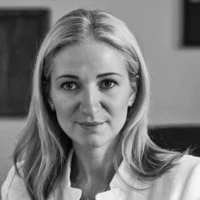I remember reading the Fast Company article about Glassdoor and Indeed laying off over a thousand employees and thinking: “This isn’t the end of something, it’s the beginning of something else.”
Because when you spend the better part of a year interviewing HR Directors, transformation leaders, and policymakers as part of a research project like FusionWork™, you begin to notice the patterns long before the headlines arrive. And this headline was no ordinary one, it signalled a shift in the infrastructure of modern employment. Two of the most prominent platforms in global hiring, downsizing at scale, not because the work has gone, but because the way it is done has fundamentally changed.
These job losses aren’t a sign of reduced demand. The work still exists. But it no longer fits inside the boxes we once labelled “job titles.” The frameworks, the ladders, the assumptions around qualification, experience, and value, they’re being rewritten in real time.
And this isn’t just happening in tech.
It’s tempting to see automation as something that removes repetitive or manual tasks. But increasingly, we’re seeing it affect the deeply technical and even the creative. Take software engineering. AI doesn’t just assist, it creates. With tools like GitHub Copilot and large language models capable of generating functional code in seconds, businesses are rethinking who they hire. The role of “developer” still exists, but the pathway into it, and the skills required to perform it, have shifted dramatically.
In many cases, companies aren’t hiring from traditional computer science pipelines at all. They’re hiring from creative fields. Gamers, designers, writers. Individuals who can prompt AI systems with clarity, vision, and nuance. People who might never have learned to code, but know how to imagine something worth building.
The role hasn’t gone. It’s just been remapped.
And this isn’t isolated to engineering.
In marketing, the idea of a linear career, from university graduate to assistant to brand manager, is increasingly being replaced by the immediacy and insight of lived digital experience. Brands today are looking to TikTok creators, YouTube storytellers, and digital community leaders. Not because they fit the old mould, but because they understand audience psychology, attention economics, and platform-native storytelling better than any textbook can teach.
In customer service, automation has absorbed much of the transactional workload. But what remains is more human than ever. Escalation support, customer retention, empathy-led recovery, these are the new deliverables. So instead of training call centre staff to follow a script, companies are recruiting people with theatre degrees, mediation training, or experience working in emotionally charged frontline roles.
Finance, too, is shifting. Automated forecasting, reconciliations, and reporting have taken over much of the traditional number-crunching. But the need for strategic interpretation, for commercial insight, for scenario planning. that has only grown. The result? A rising demand for fractional finance leadership and data-literate advisors who may not hold a traditional accounting qualification but bring the kind of flexible strategic thinking the modern business environment demands.
Even in HR, we’re seeing a redefinition of value. Traditional CV screening is being rapidly replaced by AI. But the human roles that remain are more sophisticated. Designing inclusive hiring journeys, structuring equitable compensation models, advising on AI ethics in employment, all of these tasks require critical thinking, creativity, emotional intelligence, and leadership.
And this brings us to the most consistent insight we’ve uncovered through the FusionWork interviews.
When we ask HRDs and business leaders what qualities they believe will keep someone employable over the next five years, the answers are strikingly aligned.
Not technical qualifications. Not years of service. Not even industry experience.
Instead, we hear the same four capabilities again and again: creative thinking, critical thinking, emotional intelligence, and leadership.
These are no longer “soft skills.” They are structural advantages in a world shaped by AI. They allow humans to do what machines cannot: imagine what doesn’t yet exist, interpret the ambiguous, connect with empathy, and lead with purpose.
We are moving from a task economy to an outcome economy.
And when AI can do 50% of a role, the remaining 50% must be redesigned with intention.
This means organisations need new frameworks. Not to replace people, but to reconfigure how value is created. Not to reduce headcount, but to redistribute capability. Not to follow tradition, but to lead into an uncertain future.
It also means questioning where talent comes from.
Historically, workforces were built through a system of credentials, degrees, certifications, references. Today, those filters are no longer sufficient. The most in-demand creators are often self-taught. Their portfolios live on platforms, not CVs. Their impact is measured in audience retention, not GPAs.
We’re seeing more and more businesses shift their hiring practices accordingly. No degree requirements. No arbitrary experience minimums. Just a clear understanding of the outcomes they need and the people most likely to deliver them.
This is the real work of redesigning employment. Not just digitising job specs or posting to a new platform. But reimagining the whole system. From education pipelines to internal mobility, from job architecture to performance measurement.
This is the work of FusionWork™.
As we move into the next phase of the project, our focus turns to policy. Later this year, we’ll be publishing a White Paper with recommendations for the All-Party Parliamentary Group for the Future of Work.
Our goal is simple: to ensure that the workforce transition happening inside organisations is understood, supported, and ethically guided at a national level.
We want to hear from more leaders. From HRDs designing new operating models. From teams experimenting with AI-human collaboration. From organisations engaging non-traditional talent pools. From those wrestling with the implications of automation, not in theory, but in the day-to-day mechanics of how they work.
If that’s you, we invite you to contribute to this research. Your voice matters, not only for your organisation’s future, but for the future of work in the UK.
Because the job may be gone. But the role is still here. And it’s up to all of us to decide what it becomes next.



